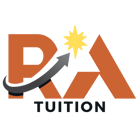The Road to Becoming a Registered Accountant (RA) in the Netherlands
Becoming a Registered Accountant (RA) is a journey that combines in-depth study with real-world practice. It’s a rewarding path for anyone passionate about numbers, ethics, and making a real impact on businesses. Here's a step-by-step guide that breaks down the entire process in simple terms, so you can understand what it takes.
12/14/20243 min read


Step 1: Building the Foundation
The first step in your journey is enrolling in an RA program at one of the accredited universities in the Netherlands. If you're an international student, some universities even offer the program in English, such as Tilburg University, Maastricht University, and Erasmus University Rotterdam.
The program consists of courses that give you a strong understanding of both theory and practical application. It can be finished in around 2 years. Here's what you'll study:
Audit & Assurance: Learn how to conduct audits, analyze risks, and ensure companies are following laws and regulations. Your instructors are often experienced accountants who bring real-world cases to the classroom. The course is concluded with partial exams per seminar, an integration case, and the national auditing exam that consists of two cases.
Internal Control and Accounting Information Systems (ICAIS): Discover how organizations set up systems to ensure reliable information, efficient operations, and compliance with laws. You will work on ICAIS cases that you have to hand in as preparation for the national ICAIS exam that consists of two cases.
Financial Accounting: Dive into the rules for preparing financial reports, understanding international reporting standards, and analyzing financial performance. During the course you are expected to hand in various cases. The course concludes with a written exam.
Don’t worry if you’re missing some prior knowledge in areas like bookkeeping or tax and corporate law—programs often offer tailored courses to help fill these gaps. These are only mandatory for students who do not have the required previously acquired competencies in these fields.
Step 2: Balancing Studies with Practice
While studying, you'll also start a three-year traineeship at an audit firm. During the traineeship, you will spend a total of at least 3,000 hours in a period of at least 3 years. This is where you put theory into practice and build hands-on experience. Here's what it involves:
Coursework: You’ll complete formal training alongside your practical work, deepening your knowledge. You usually follow trainings in your audit firm, so use them wisely in the practical training.
Personal Development Plan and Trainee Reports: Every six months, you will prepare reports outlining what you have learned on the job. These include the Personal Development Plan (PDP), the Half-Yearly Report, and the End-of-Year Report. The PDP will include your learning objectives for the year. In the Half-Yearly and End-of-Year Reports, you demonstrate the extent to which you have achieved the final objectives and how you have progressed in your development as an aspiring register accountant.
The PDP is grounded in an initial self-assessment and feedback from colleagues. In this process, you identify the general and communication skills, as well as the professional attitude, that you already possess and those that require further development. Throughout the traineeship, a practical supervisor will provide coaching, guidance, and assessment to support your growth.Dilemma Paper: You’ll document a real-life ethical dilemma you encountered during your work and how you resolved it. Important Note: It’s crucial to ensure that what you describe is truly a dilemma. A dilemma is a situation in which you are faced with two or more conflicting choices, each having significant consequences, and where there is no clear, ‘right’ solution.
Internal Control Case Study: You analyze a real-life internal control system from your work. You assess its effectiveness, identify weaknesses, and propose practical improvements. This exercise demonstrates your ability to apply theoretical knowledge to real-world situations.
Step 3: Wrapping It All Up
In your final year, you’ll face an integrated oral exam where you demonstrate everything you’ve learned through your studies and traineeship. Successfully passing this exam marks the completion of your journey.
After finishing your program and traineeship, you’ll officially be listed in the charter of the Dutch professional body for accountants, the NBA (Nederlandse Beroepsorganisatie van Accountants). From this moment on, you can proudly carry the title of Registered Accountant (RA).
Key Takeaways
Becoming an RA requires a blend of academic coursework and hands-on experience in the workplace.
The study load is intense but manageable with strong organizational skills and dedication.
The program equips you with essential skills in auditing, ethics, law, and financial analysis.
Real-world practice during the traineeship prepares you for the challenges you'll face as a professional.
By the end of this process, you’ll have not only the knowledge but also the experience to confidently step into the world of accountancy. The journey may seem challenging, but with determination and the right support, it’s an achievement that’s well within reach!
P.S. We’d love to hear from you! Let us know in the comments which topics or areas you’d like us to explore further here at RA tuition. Your feedback helps us create content that’s most helpful to you!
RA Tuition at a glance
Our mission is to empower accounting professionals with the guidance, tools, and support they need to confidently navigate the RA journey in English. Fostering personal growth and professional success.
Newsletter
Javier@ratuition.com
+31-20-1234567
© 2025. All rights reserved.
